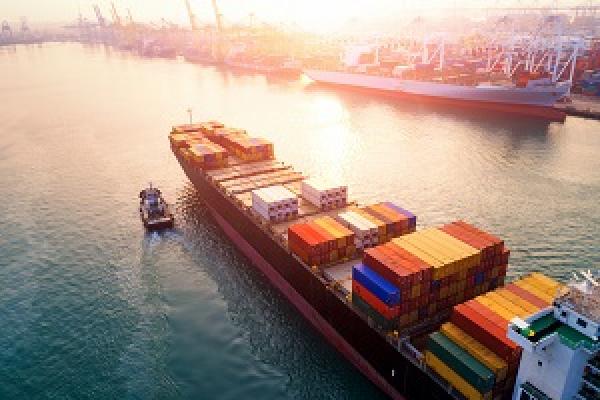
Steamship Mutual
Published: October 22, 2019

Introduction
The recent decision in London Arbitration 13/19 highlights the importance of tendering the notice of readiness (NOR) when the vessel is an “arrived ship”, and the necessity for a Master to be aware of any provision within the charterparty that may invalidate a NOR.
Facts
The vessel was chartered by the disponent owners (‘Owners’) from the head-owners for a one time charter trip from South West Pass to one safe Moroccan port. The vessel was sub-chartered on an amended Norgrain 89 form (‘Charterparty’) for the carriage of a cargo of soya meal and soya beans from Myrtle Grove.
The Charterparty provided:
Clause 18(a): “["Notice of Readiness to be tendered whether in berth or not/whether in port or not/whether custom cleared or not/whether in free pratique or not via cable/telex/vhf/within office hours: At load port ... 07:00:16:00 ..."]”; and
Clause 18(b): “"If the vessel is prevented from entering the limits of the loading/discharging port(s) because the first or sole loading /discharging berth or a lay berth or anchorage is not available within the port limits or on the order of the Charterers ... or any competent official body or authority, and the Master warrants that the vessel is physically ready in all respects to load or discharge, the Master may tender vessel’s notice of readiness, by radio if desired, from the usual anchorage outside the limits of the port, whether in free pratique or not, whether customs cleared or not. If after entering the limits of the loading port, vessel fails to pass inspections as per Clause 18(e) any time so lost shall not count as laytime or time on demurrage from the time vessel fails to pass inspections [up to USDA and/or FGIS and/or NCB and/or Shippers Surveyor satisfaction the Notice of Readiness to be considered not valid and Master shall tender valid notice of readiness after vessel passing inspection all time prior to vessel acceptance will not be considered as laytime.]"
The vessel arrived at South West Pass and tendered NOR by email at 01:15 on 24 August. At 01:40 the vessel entered the Mississippi River and changed pilots at Pilottown at 03:15, anchoring at Point Celeste Anchorage at 07:32 awaiting berth.
At 09:00 a surveyor from the National Cargo Bureau (‘NCB’) rejected the cargo holds because of rust and paint scale on the hatch covers. At 10:00 a surveyor from the United States Bureau of Agriculture passed the holds for loading.
The parties had agreed a bespoke clause, Clause 77, which provided:
“Vessel’s cargo holds on arrival [at] load port to be clean, swept, dried up, free of loose paint/rust scale, free of cargo residues from previous voyage and in every respects ready to load the intended cargo to the satisfaction of shippers’ independent surveyor. Should the vessel fail to pass the hold inspection, Owners to arrange cleaning at their time and expenses. Notice of Readiness to be considered not valid and Master to re-tender Notice of Readiness after Vessel passing inspection and approved by ship’s surveyors."
At 17:00 the NCB approved the holds for loading and at 18:10 the Charterers’ agent delivered the berthing approval, the NCB and USDA pass certificates, the NOR and a cheque for docking charges to the loading terminal.
On 25 August the USCG implemented the Maritime Hurricane Contingency Port plan in anticipation of Tropical Storm Isaac. The storm forced the vessel aground, which lead to the time Charterers declaring force majeure. The vessel was eventually refloated on 15 September and awaiting orders from 17 September, notably, after the expiry of the laycan on 2 September.
On 3 October the Charterers sent a message stating that the NOR tendered on 24 August was invalid:
(a) because the vessel was not an arrived ship; and
(b) the vessel was not in all respects ready to load.
As such, they exercised their right under clause 4 to cancel the Charterparty on the basis that the vessel’s NOR had not been “tendered and accepted as per Clause 18 before [23:59] hrs on the [2nd] day of September” which was considered to be a repudiatory breach by Owners. Owners claimed USD 906, 712.21 of demurrage, forfeit bunkers and loss of profit while Charterers counterclaimed USD 1,797,182.82.
Decision
The Tribunal agreed that the NOR tendered on 24 August was invalid. If there had been no loading berth or river anchorages available when the vessel arrived at the south West Pass, so that she could proceed no further, the Tribunal would have accepted the NOR was valid in line with clause 18(b). However, the vessel only stayed at the South West Pass long enough to take a pilot for the transit to Pilottown – the vessel was not at this point an ‘arrived ship’ as she could proceed further upriver and was not at the immediate disposal of the charterer. For the NOR to have been valid, the Master would have had to wait until the vessel was anchored at Point Celeste.
The holds did not pass the NCB inspection and therefore even if the NOR tendered as South West Pass had not been premature, it was invalid under clauses 18(b) and 77 of the charter. The Master was required to tender a new NOR once NCB had passed the holds, which he did not. However, once the holds had been passed for loading the agents included an invalid NOR with the documents submitted to the loading terminal, which the Tribunal held constituted a waiver by Charterers of the requirement for a new NOR to be served, and estopped them from so requiring.
Accordingly, the Charterers were taken to have accepted that the NOR was valid, at least from the time at which it was submitted to the terminal at 18:10 on 24 august, after the holds had been passed by the NCB at 17:00. In the circumstances, the Tribunal agreed with the Owners that the Charterers lost the right to cancel the vessel, and that in purporting to cancel, were in repudiatory breach.
Commentary
The Master and Owners should take care to comply with the exact provisions for NORs agreed in their particular charterparty. If the Master is in any doubt, then he could tender further NORs, without prejudice to any previous NOR served.
Generally, NORs cannot be validly served before the vessel qualifies as an "arrived ship", which means that the vessel must have reached the place specified, whether expressly or impliedly, by the charterparty. Under a berth charter, the vessel will not be considered arrived until she reaches the specified or nominated berth within a named port. Under a port charterparty, the position as common law is that the vessel must satisfy two conditions:
- if the ship cannot immediately proceed to a berth, she must have reached a position within the port where waiting ships usually lie; and
- the vessel must be at the immediate and effective disposition of the charterers.
While the general position, these basic propositions may be varied by the inclusion of specific provisions such as "whether in berth or not" ("WIBON"), "whether in port or not" ("WIPON"), or a “reachable on arrival” clause within the charterparty.
It is common for masters to tender NORs at the first pilot station at the end of the sea passage. The Tribunal in London Arbitration 13/19 was critical of this “mistaken belief” and a Master should always ensure that the NOR is tendered when the vessel is an “arrived ship”, in this instance having gone as far upriver as possible, and being at the immediate disposal of the charterer. Cases such as The Maratha Envoy[1] and the Agamemnon[2] show that this is not a new issue.
In the case of The Maratha Envoy, the charterer nominated Brake, a river port on the Weser as the port of loading. No berths were available when the vessel arrived and therefore it was instructed not to proceed upstream but to wait at the Weser light, the normal waiting place for vessels as there was no suitable anchorages on the river, 25 miles downstream from Brake. The vessel conducted a number of voyages upriver to Brake, where she tendered notice of readiness, but then turned and returned back to the anchorage. These manoeuvres were described by the judge as being “voyages of convenience” and these did not serve to make the vessel an arrived ship.
The facts in the Agamemnon draw a clear parallel to that of this case as it was held that a NOR given at the South West Pass, which was noted as a customary waiting area for vessels wishing to enter the Mississippi river to proceed to one of the upriver ports, in this case the Port being Baton Rouge, was not a valid notice. This was because Baton Rouge had its own anchorage about 170 miles from the South West Pass and therefore the vessel was not an “arrived ship”.
Fortunately for Owners in London Arbitration 13/19 an otherwise invalid NOR was considered valid. The Tribunal noted that neither party had taken the appropriate action and, while little should be inferred from Charterers’ silence on its own, from that silence in conjunction with the agents submitting the NOR along with the other required documents and Owners’ reliance on that conduct, the Tribunal considered the original NOR as accepted.
An owner and the master should always ensure that they are aware of any provisions within the charterparty which may invalidate the NOR including at what location a NOR can be given. The master should ensure the NOR is re-tendered once the specified breach has been remedied.
[1] [1977] 2 Lloyd's Rep 301
[2] [1998] 1 Lloyd's Rep 675

Article by Rebecca Penn-Chambers


